
Sokodé: The Heartbeat of Central Togo
Nestled in the heart of Togo, Sokodé is a vibrant city that offers a rich tapestry of culture and history. Known for its lively markets, traditional crafts, and warm hospitality, Sokodé provides a unique glimpse into the daily life of the Togolese people. The city's diverse population and bustling atmosphere make it a must-visit destination for anyone looking to experience the authentic spirit of Togo. Sokodé is famous for its traditional wrestling matches, which are a major cultural event. These matches, held in open-air arenas, attract spectators from all over the region. The energy and excitement of the crowd are palpable, making it an unforgettable experience for visitors. In addition to wrestling, Sokodé is also known for its vibrant festivals, including the Gadao-Adossa-Kosso, which celebrates the local culture and heritage through music, dance, and colorful parades. For those interested in history, Sokodé offers several landmarks and museums that provide insights into the region's past. The city's architecture reflects a blend of traditional and colonial influences, with many buildings showcasing intricate designs and craftsmanship. Visitors can also explore the local markets, where they will find a variety of handcrafted goods, from textiles to pottery, each telling a story of the area's rich cultural heritage.
Local tips in Sokodé
- Visit the local markets early in the morning for the freshest produce and unique handcrafted items.
- Attend a traditional wrestling match to experience the local culture and community spirit.
- Plan your visit around the Gadao-Adossa-Kosso festival to enjoy music, dance, and colorful parades.
- Take a guided tour of the city's historical landmarks to gain a deeper understanding of Sokodé's rich heritage.
- Learn a few basic phrases in French, as it is widely spoken and will help you communicate more easily with locals.
Sokodé: The Heartbeat of Central Togo
Nestled in the heart of Togo, Sokodé is a vibrant city that offers a rich tapestry of culture and history. Known for its lively markets, traditional crafts, and warm hospitality, Sokodé provides a unique glimpse into the daily life of the Togolese people. The city's diverse population and bustling atmosphere make it a must-visit destination for anyone looking to experience the authentic spirit of Togo. Sokodé is famous for its traditional wrestling matches, which are a major cultural event. These matches, held in open-air arenas, attract spectators from all over the region. The energy and excitement of the crowd are palpable, making it an unforgettable experience for visitors. In addition to wrestling, Sokodé is also known for its vibrant festivals, including the Gadao-Adossa-Kosso, which celebrates the local culture and heritage through music, dance, and colorful parades. For those interested in history, Sokodé offers several landmarks and museums that provide insights into the region's past. The city's architecture reflects a blend of traditional and colonial influences, with many buildings showcasing intricate designs and craftsmanship. Visitors can also explore the local markets, where they will find a variety of handcrafted goods, from textiles to pottery, each telling a story of the area's rich cultural heritage.
When is the best time to go to Sokodé?
Iconic landmarks you can’t miss
Stade municipal de Sokodé
Experience the vibrant culture and sports enthusiasm at Stade Municipal de Sokodé, a must-visit landmark in Togo's heart.
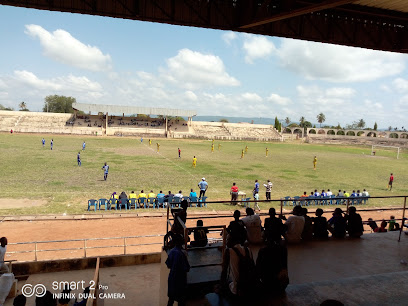
Hôtel Central
Discover the charm of Sokodé at Hôtel Central, where comfort meets local culture in the heart of Togo's vibrant landscape.
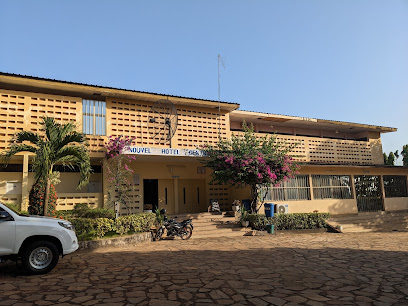
Grande Mosquée de Sokodé-Ouest
Discover the Grande Mosquée de Sokodé-Ouest, an architectural gem that reflects the spiritual heart of Sokodé, Togo, and immerse yourself in local culture and tradition.
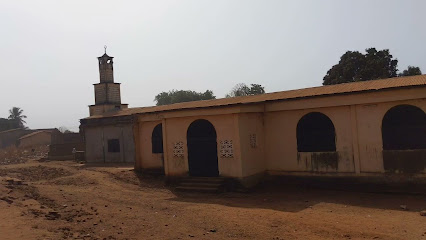
Lomé
Explore Lomé, Togo's vibrant capital, where the local post office connects the community and offers a glimpse into the heart of Togolese culture.

Togo
Experience the tranquility and cultural richness of Togo, a stunning mosque in Sokodé that invites exploration and reflection.

توجو
Experience authentic Togolese hospitality at a charming hotel in Sokode, the cultural heart of Togo, where comfort meets tradition.

Unmissable attractions to see
Musee regional de Sokode
Explore the rich cultural heritage of Togo at the Musée Régional de Sokodé, a must-visit destination for history and art enthusiasts.
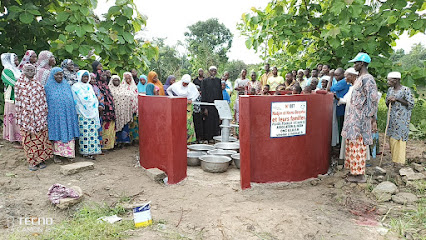
ferme Kparioh PdeJ
Explore the serene beauty of Ferme Kparioh PdeJ, a lush park in Kparioh perfect for relaxation and cultural immersion amid nature's splendor.
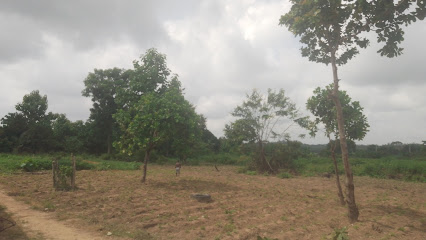
Kassena
Experience the enchanting charm of Kassena, Togo, where rich culture meets breathtaking landscapes in a captivating tourist attraction.
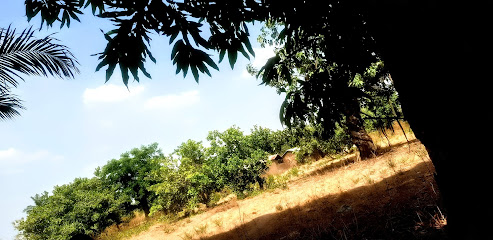
Tchabigou, Korbongou
Explore Tchabigou, a cultural oasis in Korbongou, where nature and tradition blend seamlessly for an unforgettable travel experience.
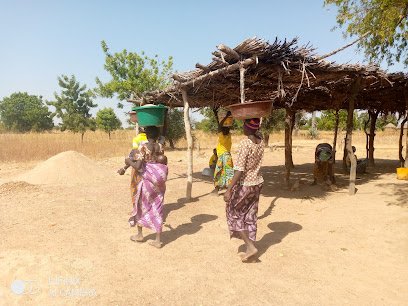
FUtur Parc promet Kokari
Discover the tranquility of FUtur Parc Promet Kokari, a peaceful park in Sagbadeyi, Togo, perfect for relaxation and family outings amidst nature.
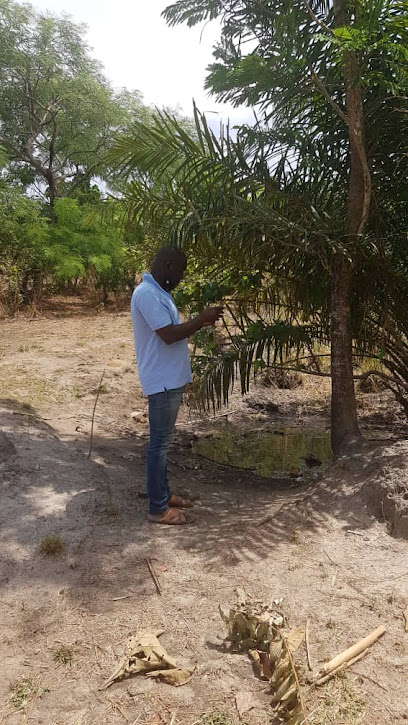
KOUVON
Explore KOUVON in Sokode, Togo, a vibrant tourist attraction that showcases the rich culture, traditions, and stunning landscapes of the region.

Essential places to dine
Hôtel Central
Discover comfort and culture at Hôtel Central in Sokodé – your perfect base for exploring Togo's vibrant heart.
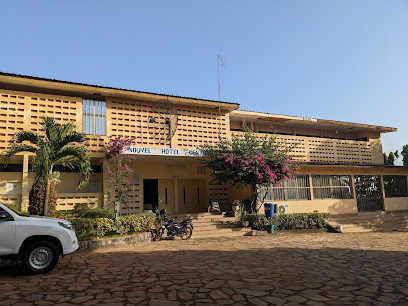
Solim Hotel
Discover comfort and local culture at Solim Hotel in Sokodé, your ideal retreat just minutes from vibrant attractions.
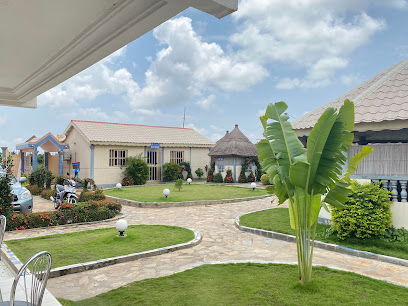
Hôtel Aleheri
Experience comfort and culture at Hôtel Aleheri in Sokodé, Togo - your ideal lodging choice for an authentic travel experience.
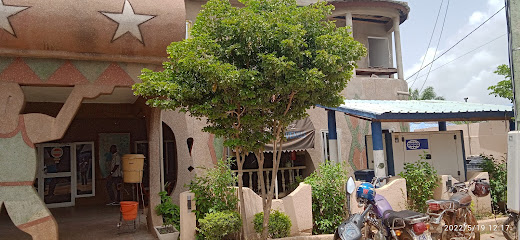
Hôtel LAMIREL
Experience the warmth of Togolese hospitality at Hôtel LAMIREL in Sokode - your gateway to comfort and local culture.
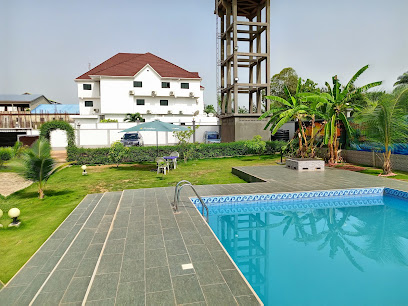
Boulangerie babalima
Discover authentic Togolese flavors at Boulangerie Babalima in Sokodé – where every bite tells a story.
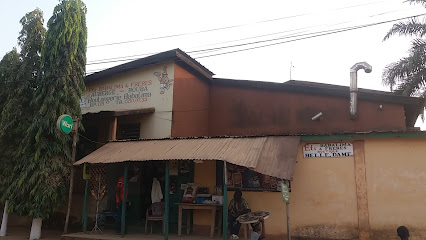
Ango Transport
Experience the warm ambiance and rich flavors at Ango Transport - Sokodé's charming coffee shop offering authentic Togolese brews.
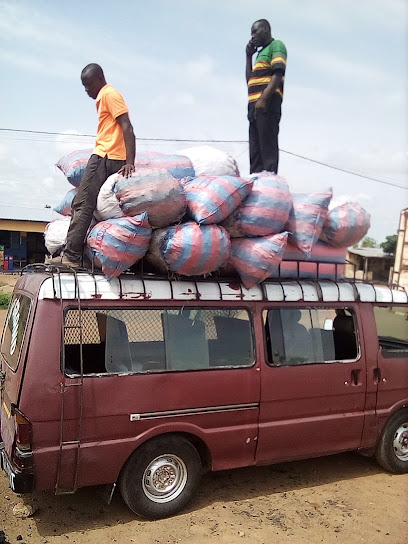
Restauration/Chez Wass
Savor authentic American cuisine at Restauration/Chez Wass in Sokode - where affordability meets flavor!
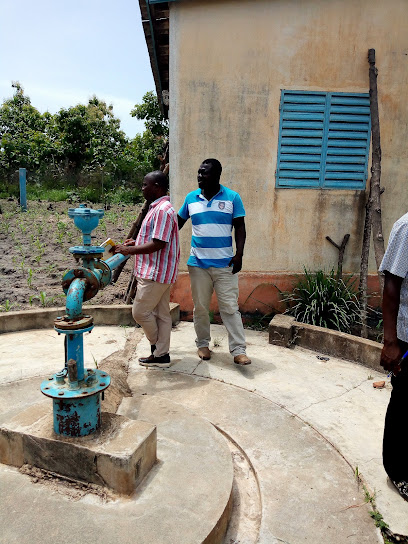
Cafe Bazar
Discover the heart of Sokode at Cafe Bazar - where local flavors meet cozy ambiance for an unforgettable dining experience.
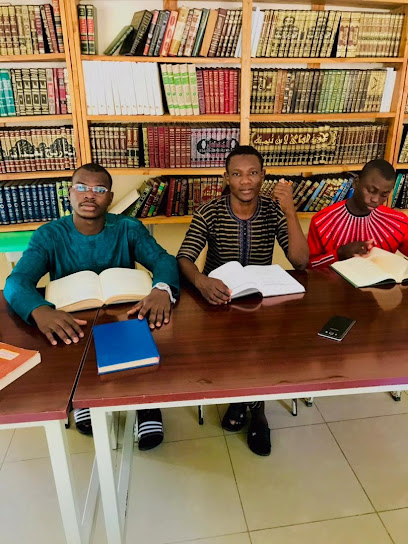
Cafétéria Kratos Sokodé
Discover authentic Togolese cuisine at Cafétéria Kratos Sokodé - where flavors meet hospitality in a cozy setting.
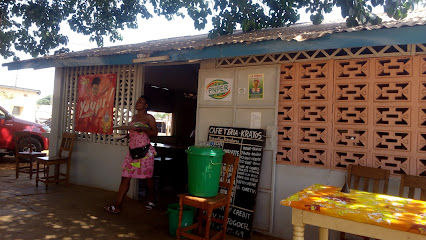
BAR ROUTE DE TCHAMBA
Discover Bar Route de Tchamba: A vibrant bar in Sokode offering refreshing drinks and an authentic local experience.

CAFE-RESTAURANT-BAR LA PAIX
Savor authentic Togolese flavors at Café-Restaurant-Bar La Paix – where culinary delight meets cultural vibrancy.
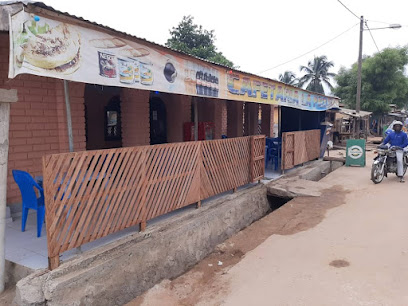
Bar Cafetaria Wazap
Savor authentic Togolese flavors at Bar Cafetaria Wazap in Sokode – where every meal tells a story.
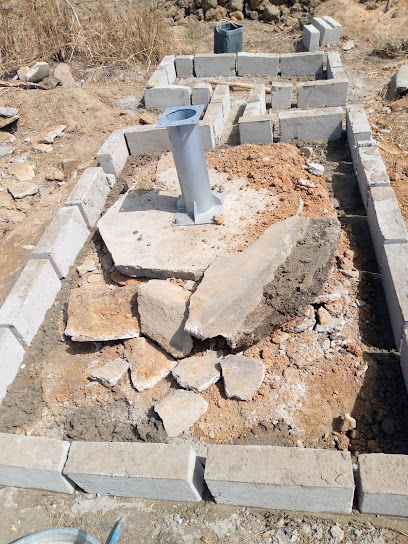
Bar Resto Claudia
Discover authentic Togolese cuisine at Bar Resto Claudia in Sokode – where flavors meet affordability!
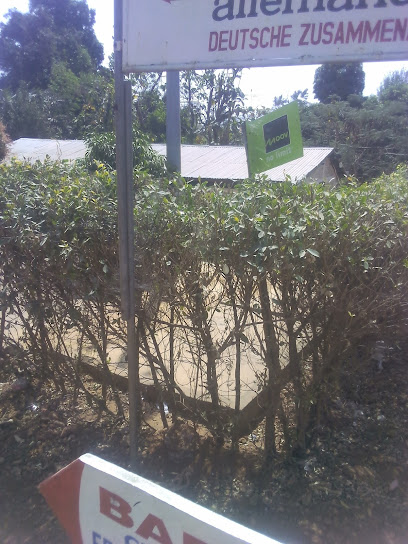
Bel air
Discover the vibrant nightlife at Bel Air in Sokodé - where local culture meets relaxation and unforgettable experiences await.
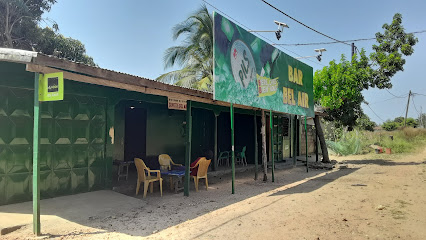
bar nopégali
Experience authentic Togolese cuisine at Bar Nopégali in Sokodé, where vibrant atmosphere meets traditional flavors.
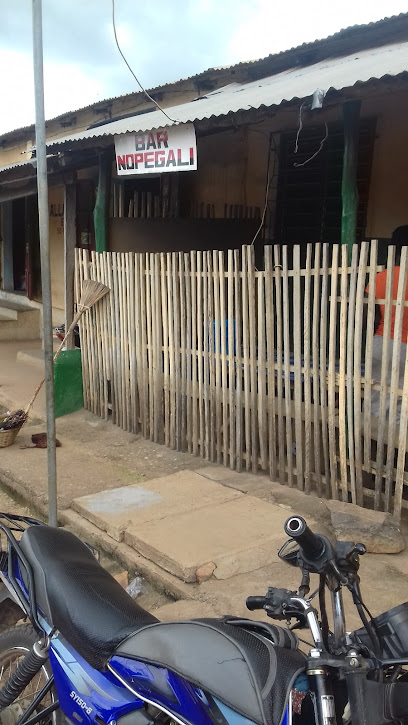
Markets, malls and hidden boutiques
Grand Marché de Sokodé
Experience the bustling energy and rich culture of Sokodé at the Grand Marché, a must-visit shopping destination for every traveler.
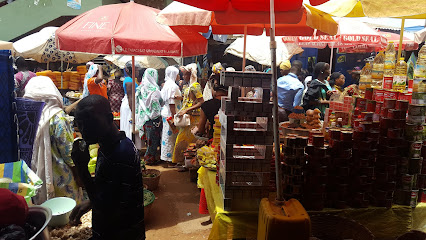
Marché de Komah
Discover the vibrant culture of Sokodé at Marché de Komah, a bustling market filled with fresh produce, traditional crafts, and local delicacies.
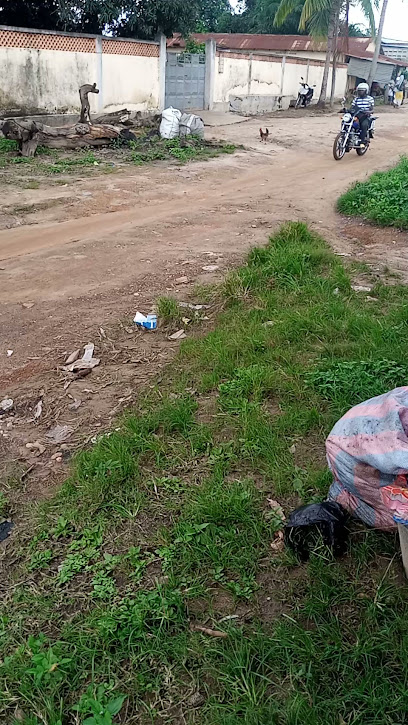
Tchawanda - AKamade
Explore the vibrant Tchawanda - AKamade Supermarket in Sokode for a taste of local culture and fresh produce.

AL-ISHARAH ELECTRONICS & FOF CNAM TECHNOLOGIES
Explore Sokode's top electronics store, offering the latest gadgets and exceptional customer service for all your tech needs.
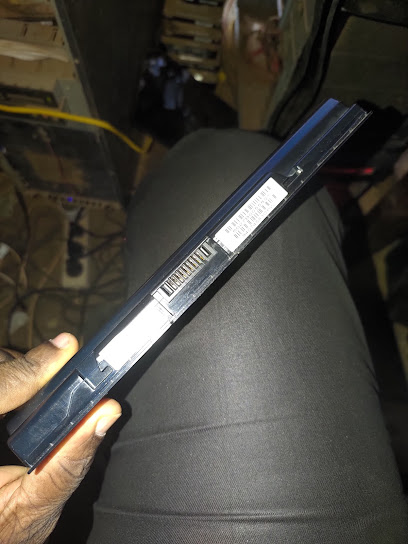
CIM-TOGO Carrefour
Discover the vibrant shopping scene and local flavors at CIM-TOGO Carrefour, Sokodé's premier shopping mall offering a unique blend of retail and dining experiences.

ITALIEN BOUTIQUE
Explore Sokode's vibrant shopping scene at Italien Boutique, where local flavors meet an array of international products.

Azia boutique
Immerse yourself in the vibrant culture of Sokodé at Azia Boutique, a premier produce market showcasing the best of Togolese agriculture.
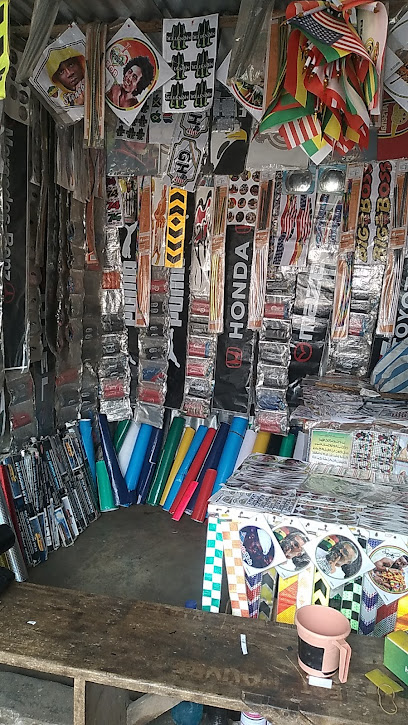
SUPÉRETTE HORIZON
Discover the essence of local Togolese culture at SUPÉRETTE HORIZON, your one-stop supermarket in Sokodé for fresh goods and unique flavors.
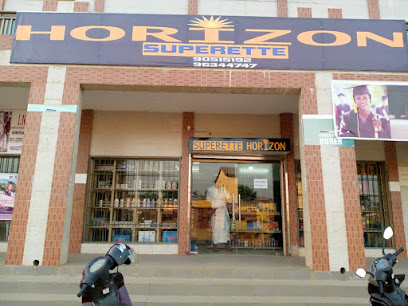
Ets Ben Omar
Discover the vibrant essence of Sokode at Ets Ben Omar, a premier fashion accessories store offering unique items that celebrate local culture.
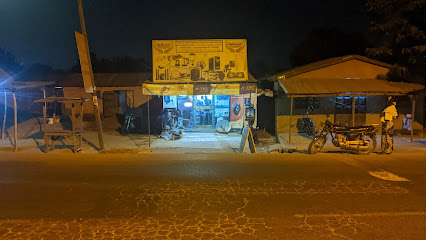
CANAL+ Distributeur Agreer
Explore the vibrant local culture and diverse offerings at CANAL+ Distributeur Agreer in Sokodé, a must-visit shopping destination for tourists.
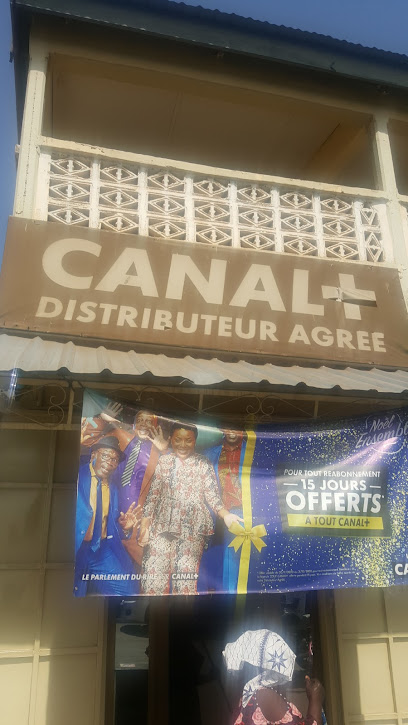
Samson Business Corporation
Experience the authentic flavors of Sokodé at Samson Business Corporation, where delicious tamales await your taste buds.
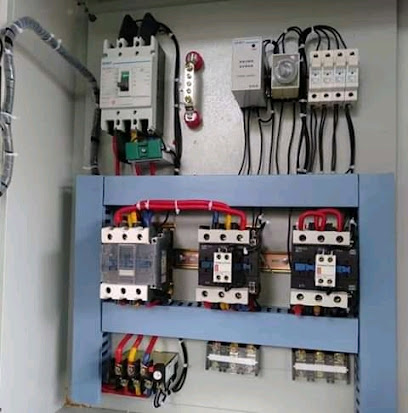
ETS BAYI ET FRERES
Explore ETS BAYI ET FRERES in Sokodé for an unforgettable shopping experience featuring local crafts, delightful cuisine, and a vibrant atmosphere.
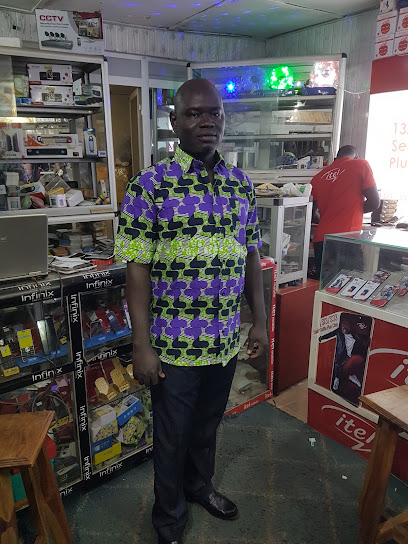
Saanon
Explore the vibrant Saanon Supermarket in Sokodé, a treasure trove of local goods and fresh produce, perfect for every traveler.
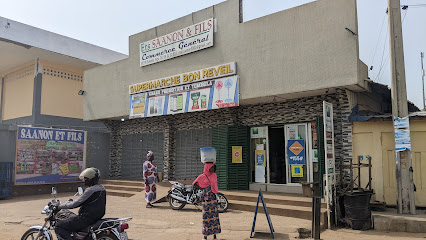
Ets Tchabou
Discover Ets Tchabou in Sokode - where quality hardware meets exceptional service for all your DIY needs.
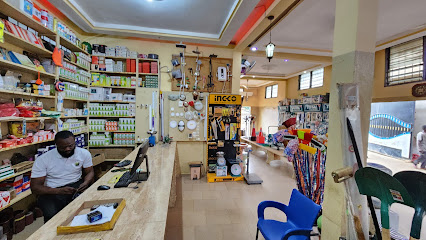
Marché de Tchalo
Discover the heart of Togolese culture and cuisine at Marché de Tchalo, a vibrant market in Sokodé showcasing local crafts and delicious street food.

Essential bars & hidden hideouts
BAR ROUTE DE TCHAMBA
Experience the lively atmosphere of Bar Route de Tchamba, where locals and tourists gather to enjoy authentic Togolese drinks and vibrant nightlife in Sokode.

Bar Équinoxe Sokode
Discover the lively nightlife of Sokodé at Bar Équinoxe, where local flavors and vibrant culture come together for an unforgettable experience.
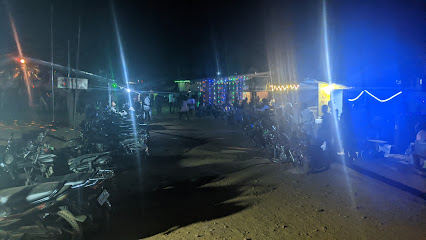
Bar Restaurant LA FAVELA Sokode
Discover the lively atmosphere of Bar Restaurant LA FAVELA in Sokode, where traditional drinks and vibrant culture come alive.
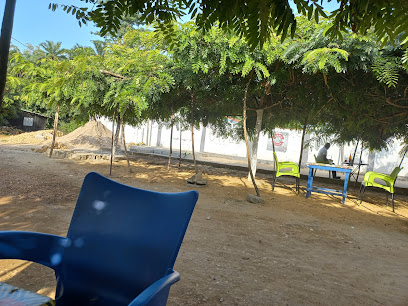
BAR ENERGIE PLUS
Experience the vibrant nightlife of Sokodé at Bar Energie Plus, a lively bar offering refreshing drinks and a friendly atmosphere.

Bar Rossignol
Discover the lively atmosphere of Bar Rossignol in Sokode, a vibrant bar that captures the essence of Togolese nightlife and local culture.
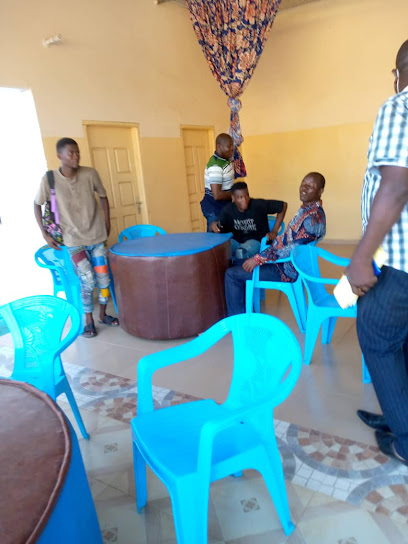
BAR NEW WORLD
Discover the lively ambiance of Bar New World in Sokodé, a local bar where culture and community come together for a memorable experience.
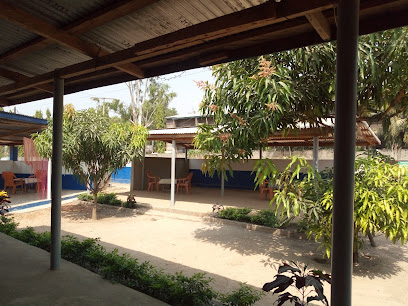
CHRIST BAR
Experience the vibrant atmosphere at Christ Bar in Sokode, where refreshing drinks meet a lively ambiance for an unforgettable night out.
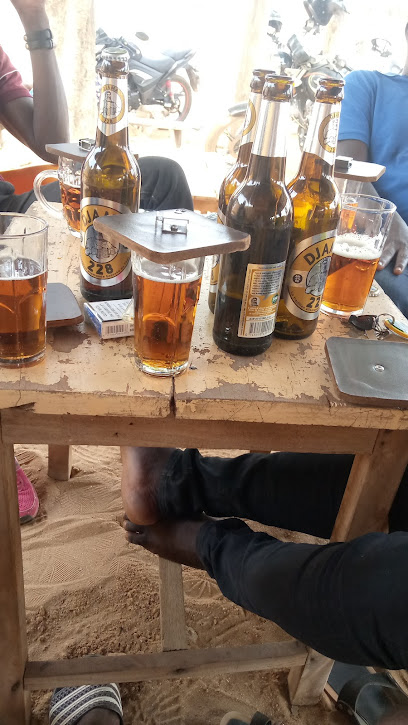
BAR TEMPS EN TEMPS
Experience the vibrant nightlife of Sokodé at BAR TEMPS EN TEMPS, where local culture meets refreshing drinks in a lively atmosphere.
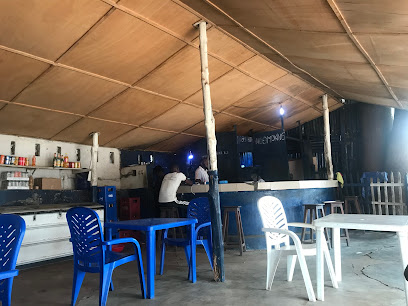
Bar secret jardin
Experience the vibrant nightlife of Sokodé at Bar Secret Jardin, a lively live music bar that celebrates local culture and entertainment.
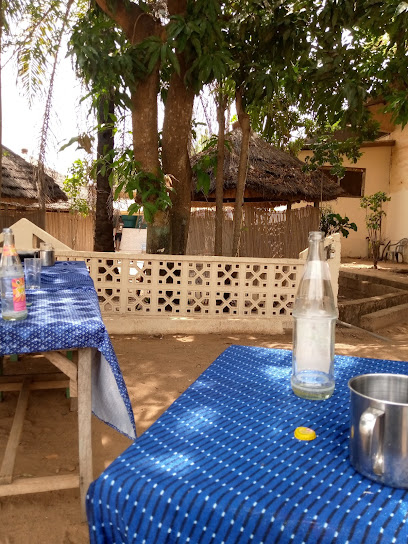
Bar Susu
Discover the vibrant essence of Sokodé at Bar Susu, where local culture and refreshing drinks come together in a cozy atmosphere.

Bar La Fontaine
Experience the vibrant atmosphere of Bar La Fontaine in Sokodé, where local culture and refreshing drinks come together for an unforgettable night out.
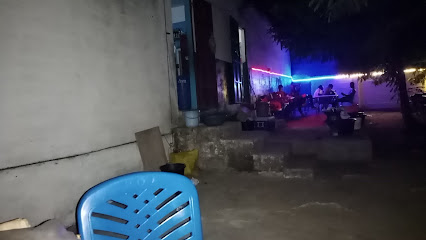
Bar Reggae Peace and Love
Dive into the vibrant nightlife of Sokode at Bar Reggae Peace and Love, where reggae music meets a lively atmosphere and great drinks await.
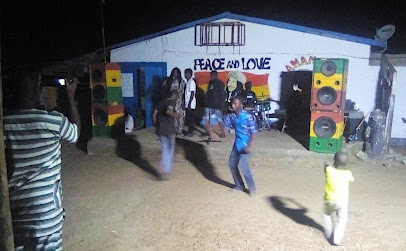
BAR CLUB STARS
Discover the vibrant nightlife of Sokode at Bar Club Stars, where live music and local culture create unforgettable experiences.
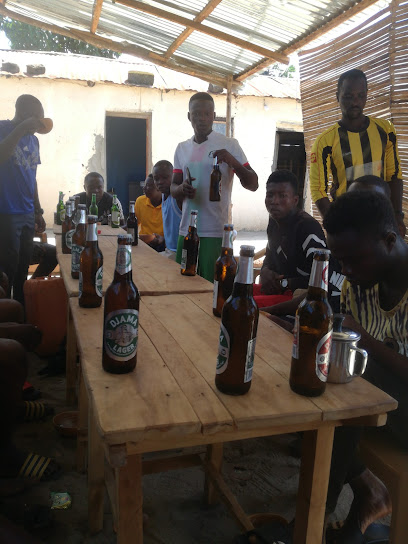
Bar Kassav
Experience the lively atmosphere and local flavors at Bar Kassav, a must-visit bar in Sokodé, Togo, perfect for unwinding and enjoying Togolese culture.
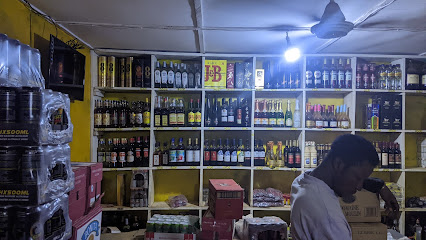
Local Phrases about Sokodé
-
- HelloKuku
[Koo-koo] - GoodbyeAdeu
[Ah-deh-oo] - YesEe
[Ee] - NoAye
[Ah-yeh] - Please/You're welcomeAke
[Ah-keh] - Thank youAkpe
[Ah-kpeh] - Excuse me/SorryKoko
[Koh-koh] - How are you?Wo ase
[Woh ah-seh] - Fine. And you?Akuaba. Na wo ase?
[Ah-kwah-bah. Nah woh ah-seh?] - Do you speak English?Wo gbe English?
[Woh gbeh English?] - I don't understandMe nnye fe
[Meh nyeh feh]
- HelloKuku
-
- I'd like to see the menu, pleaseMenyu mli me
[Men-yoo mlee meh] - I don't eat meatMe nye kane
[Meh nyeh kah-neh] - Cheers!Egbe
[Eh-beh] - I would like to pay, pleaseMli me
[Mlee meh]
- I'd like to see the menu, pleaseMenyu mli me
-
- Help!Ehu!
[Eh-hoo!] - Go away!Vade!
[Vah-deh!] - Call the Police!Vode polis!
[Voh-deh poh-lees!] - Call a doctor!Vode doktara!
[Voh-deh dohk-tah-rah!] - I'm lostMe la kafu
[Meh lah kah-foo] - I'm illMe nye
[Meh nyeh]
- Help!Ehu!
-
- I'd like to buy...Mli me...
[Mlee meh...] - I'm just lookingMli me
[Mlee meh] - How much is it?Wo nyin a?
[Woh nyin ah?] - That's too expensiveAke be wo nyin
[Ah-keh beh woh nyin] - Can you lower the price?Wo le gbe wo nyin?
[Woh leh gbeh woh nyin?]
- I'd like to buy...Mli me...
-
- What time is it?Wo ngbe ase?
[Woh ngbeh ah-seh?] - It's one o'clockOa ko
[Oh-ah koh] - Half past (10)Nyi ko nyi
[Nyi koh nyi] - MorningTsiame
[Chah-meh] - AfternoonDzogbe
[Zoh-beh] - EveningKoklo
[Koh-kloh] - YesterdayKple dzela
[Kpleh zeh-lah] - TodayDede
[Deh-deh] - TomorrowAzo
[Ah-zoh] - 1Yi
[Yee] - 2Eha
[Eh-hah] - 3Eli
[Eh-lee] - 4Enu
[Eh-noo] - 5Atan
[Ah-tahn] - 6Awodome
[Ah-woh-doh-meh] - 7Ade
[Ah-deh] - 8Dzelu
[Zeh-loo] - 9Dzome
[Zoh-meh] - 10Lɔ
[Loh]
- What time is it?Wo ngbe ase?
-
- Where's a/the...?Ɖe...be?
[Deh...beh?] - What's the address?Ɖe ŋutili?
[Deh ngoo-tee-lee?] - Can you show me (on the map)?Wo le me kple (kple hɔsɔ)?
[Woh leh meh kpleh (kpleh hoh-soh)?] - When's the next (bus)?Ŋɔlɔ...be?
[Ngohl-oh...beh?] - A ticket (to ....)Kɔɔnɔ (la ....)
[Kohn-ohn (lah ....)]
- Where's a/the...?Ɖe...be?
History of Sokodé
-
Sokodé, located in the central region of Togo, was founded in the 17th century by the Tem people, who migrated from the north. The city quickly became a significant settlement due to its strategic location along trade routes connecting the northern savannah regions with the southern forested areas. This crucial positioning fostered the growth of Sokodé into a bustling trade hub.
-
In the late 19th century, Sokodé fell under German colonial rule as part of Togoland. The Germans recognized Sokodé's strategic importance and established administrative structures in the city. They built roads and introduced new agricultural techniques, which influenced the local economy. German colonial architecture from this period can still be found in Sokodé, offering a glimpse into its past under European influence.
-
After World War I, Togoland was divided between the British and the French, with Sokodé falling under French control. The French administration continued to develop the city, focusing on infrastructure and education. This period saw the construction of schools and the introduction of the French language, which significantly shaped the city's educational and cultural landscape.
-
Togo gained independence from France in 1960, and Sokodé became an important center for the new nation. The city continued to grow, benefiting from national development projects. Sokodé's blend of traditional Tem culture and modern influences from its colonial past created a unique cultural tapestry that is still evident today.
-
Sokodé is renowned for its vibrant cultural festivals, most notably the Gadao-Adossa-Kamou festival, which celebrates the bravery of the Tem warriors. This festival includes traditional wrestling, dances, and elaborate ceremonies that draw visitors from all over Togo and beyond. The city's rich traditions are also reflected in its crafts, music, and cuisine, offering a deeply immersive cultural experience.
-
Today, Sokodé is Togo's second-largest city and continues to play a crucial role in the country's socio-economic development. It is a center for education, commerce, and culture in the central region. The city is also known for its peaceful coexistence of diverse ethnic groups and religions, which contributes to its dynamic and harmonious social fabric.
Sokodé Essentials
-
Sokodé is located in the central region of Togo. The nearest international airport is Gnassingbé Eyadéma International Airport in Lomé, approximately 340 kilometers away. From Lomé, you can take a bus or hire a private taxi to Sokodé. The journey typically takes around 5 to 6 hours by road. Alternatively, domestic flights may be available from Lomé to Sokodé’s small airport, depending on the season and demand.
-
In Sokodé, local transportation options include motorcycle taxis (known as 'zemidjans'), conventional taxis, and minibuses. Zemidjans are a popular and affordable way to get around town quickly. Taxis can be hired for longer trips outside the city. For a more independent exploration, consider renting a car. Be mindful that road conditions can vary and driving standards may differ from what you are used to.
-
The official currency in Togo is the West African CFA franc (XOF). Credit cards are accepted in some hotels, restaurants, and shops, but it is advisable to carry cash, especially in smaller establishments and rural areas. ATMs are available in Sokodé, but it is wise to withdraw sufficient cash in Lomé before traveling to ensure you have enough funds.
-
Sokodé is generally a safe destination for tourists. However, like any travel destination, it is advisable to take standard precautions. Avoid walking alone at night in unfamiliar areas and keep an eye on your belongings in crowded places. While Sokodé does not have specific high-crime areas targeting tourists, it is best to stay vigilant and aware of your surroundings.
-
In case of emergency, dial 117 for police assistance or 118 for medical emergencies. Sokodé has local police stations and medical facilities that can provide assistance. It is highly recommended to have travel insurance that covers medical emergencies. For minor health issues, there are pharmacies in town where you can purchase over-the-counter medications.
-
Fashion: Do dress modestly, especially when visiting religious sites. Avoid wearing revealing clothing. Religion: Do respect local customs and traditions. Always remove your shoes before entering a mosque or traditional home. Public Transport: Do be respectful and give up your seat to elderly passengers. Don’t eat or drink on public transport. Greetings: Do greet people with a handshake, and use your right hand or both hands. Avoid using your left hand for greetings or giving items. Eating & Drinking: Do try local delicacies and accept food offerings graciously. Don’t refuse hospitality, as it is considered impolite.
-
To experience Sokodé like a local, visit the local markets where you can buy fresh produce and traditional Togolese goods. Engage with locals, as they are often friendly and willing to share stories about the town’s history and culture. Don’t miss visiting the weekly market, which is a bustling hub of activity and a great place to observe local life. Additionally, attending traditional dance performances and festivals can provide a deeper insight into the cultural heritage of Sokodé.
Nearby Cities to Sokodé
-
Things To Do in Tamale
-
Things To Do in Notse
-
Things To Do in Kpalimé
-
Things To Do in Lokossa
-
Things To Do in Ho
-
Things To Do in Ouidah
-
Things To Do in Aneho
-
Things To Do in Lomé
-
Things To Do in Abeokuta
-
Things To Do in Porto-Novo
-
Things To Do in Cotonou
-
Things To Do in Ibadan
-
Things To Do in Koforidua
-
Things To Do in Lagos
-
Things To Do in Kumasi






